Resources
This carefully curated collection of resources will help you find packages and learning resources to help you on your R journey.
Helpers for Automatic Translation of Markdown-based Content • babeldown
Helpers for Automatic Translation of Markdown-based Content
Go to Resource
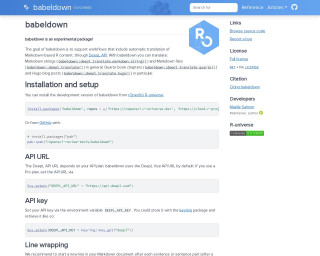
Helpers for Automatic Translation of Markdown-based Content • babeldown
babeldown is an R package designed for automatically translating Markdown-based R content with the help of the DeepL API. It facilitates the translation of Markdown strings, files, Quarto book chapters, and Hugo blog posts. The package offers a straightforward installation process through rOpenSci R-universe or GitHub. It supports the free and Pro plans of the DeepL API, requiring configuration of the API URL and key. Features like recommended line-wrapping practices and troubleshooting tips for common issues, such as punctuation mix-ups and API credit exhaustion, are provided. RStudio users can also benefit from integrated features.
Go to Resource
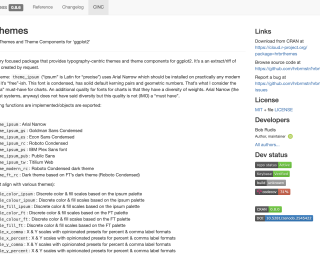
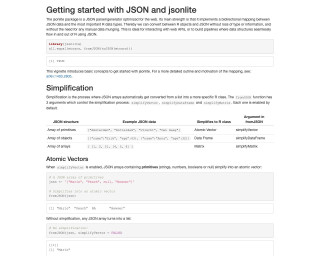
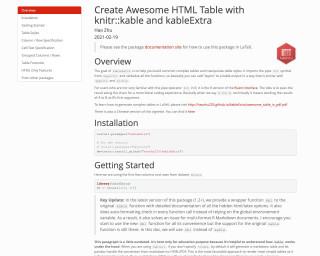
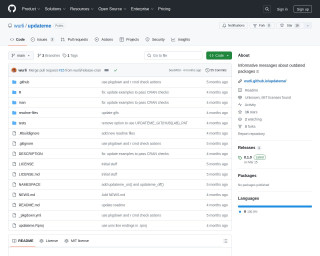
Keep your packages up-to-date with minimal hassle
{updateme} is an R package that enhances the library() function by displaying informative messages about the current status of loaded packages with respect to their latest versions. It supports packages installed from CRAN, Bioconductor, GitHub, and GitLab. The tool provides configurations for checking updates and can be easily integrated into the R startup process. The package also features caching mechanisms to improve performance and can be toggled on or off as needed. It's designed to help R users keep their packages up-to-date with minimal hassle.
Go to Resource
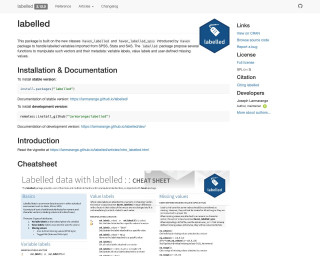
labelled
Manipulating Labelled Data is a package in R that provides functions for handling labelled variables imported from SPSS, Stata, and SAS. It allows for manipulation of variable labels, value labels, and user-defined missing values.
Go to Resource
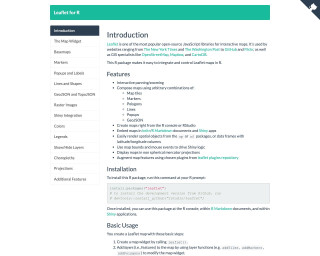
leaflet
Leaflet for R is an R package that makes it easy to integrate and control Leaflet maps in R. It provides interactive panning/zooming, the ability to compose maps using various map elements, and integration with Shiny apps. The package allows users to create maps from the R console or RStudio, embed maps in knitr/R Markdown documents and Shiny apps, and render spatial objects from the sp or sf packages. The package is widely used by websites, GIS specialists, and data visualization professionals.
Go to Resource
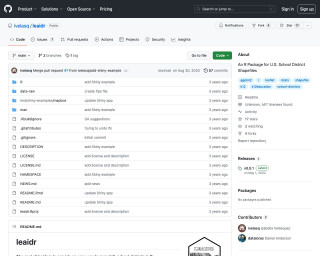

LibreTranslate API for R: translate, detect languages
libretranslateR is an R package that provides a binding to the LibreTranslate API, enabling users to perform translation tasks, detect languages, and list available languages for translation, all from within R. The package includes a user-friendly wizard for configuration, and allows connections to any LibreTranslate instance, offering flexibility and offline translation capabilities by hosting your own instance. Currently not available on CRAN, it can be installed directly from GitHub via the 'remotes' package, and comes with features like auto-detection of languages, translation without leaving R, and future enhancements like file translation and more user-friendly language names.
Go to Resource
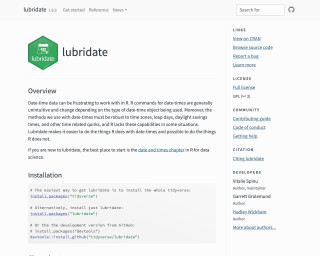
lubridate
Lubridate makes working with date-time data easier in R. It provides intuitive commands for parsing and manipulating date-times, handles time zones and other quirks, and expands the types of mathematical operations that can be performed with date-time objects. This resource provides an overview of lubridate, installation instructions, a cheatsheet of its features, and information about its code of conduct.
Go to Resource

Make simpler working with environmental data products • tidypollute
tidypollute is an R package designed to streamline the process of working with EPA AirData flat files and AQS API for environmental data analysis. Developed by Dr. Nelson Roque, the package provides tools for importing, cleaning, analyzing, and visualizing large-scale air pollution datasets. It's built with the tidyverse ethos, ensuring tidy and efficient data handling. Key features include processing EPA data files, extracting Atmotube Cloud API data, and soon to be added are real-time API queries, quick visualization tools, documentation generation, and demographic data integration.
Go to Resource